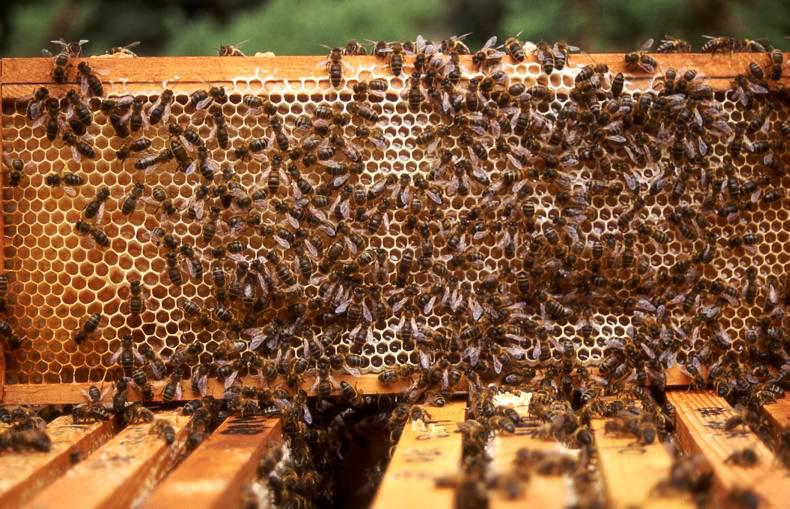A debate was held on Monday in Brussels on the importance of bee pollination for the environment, for food protection and for life as we know it as part of 2016 European Week of Bees and Pollination.
Much emphasis was placed on the new Common Agricultural Policy (CAP) after 2020, and the need for further supports for farmers to be able to provide habitats for solitary bees.
MEP Mairead McGuinness, who was the organiser of the event, said that while the current emphasis on greening in CAP was strong, it needed to be enhanced further.
"The current CAP has a strong emphasis on greening, with payments linked to environmental delivery ... While this is welcome and is good for farming and the countryside, the focus on measured delivery of results is taking away from the need for greater partnerships and co-operation between, for example, the farming community and beekeepers.
“While this is very strong in some places, it needs to be enhanced further and that can only be done by greater exchanges and meetings between the two groups so that they can learn from each other and support the needs of all bees, including our honey bees," she said.
Fearful
President of the International Federation of Beekeepers Associations, Irish man Philip McCabe, attended the event to voice his concerns for beekeepers not only in Ireland, but internationally. Speaking to the Irish Farmers Journal, he said that biodiversity in Ireland is in decline.
"In Ireland, the worrying thing is that there has been no increase in intensive agriculture in recent years, yet the biodiversity is going down. 10 or 12 years ago, when you drove from Dublin to Galway, the first thing you had to do when you got there was wash your windscreen, because it would be covered in insects. Now you could drive there and back twice even without having to wash it at all.
10 or 12 years ago, when you drove from Dublin to Galway, the first thing you had to do when you got there was wash your windscreen, because it would be covered in insects.
"In the northern hemisphere there is a serious decline in not only honey bees, but all insects. The decline in biodiversity is affecting the food chain, and ultimately affecting ourselves. We're walking with our eyes wide open into the abyss," he said.
McCabe is fearful that the ban on neonicotinoids introduced by the EU some years ago will be lifted. Linked to a decline in bee populations and other wildlife, these neonicotinoids were used as an agricultural insecticide until the ban was introduced.
"The companies that produced these chemicals are lobbying the governments and putting the pressure on, and I am very fearful that this ban will be lifted," he said.
McCabe is looking to start a forum with the Department of Agriculture, and with all the farm organisations, to sit down and discuss the issue.
"Farmers need to be aware of the damage that they are doing to the biodiversity by spraying chemicals. They don't realise the impact that it is having, so we want to be able to educate them.
"Slovenia leads the way in Europe. They have a long history of beekeeping. They now produce 80% of their own honey, and import 20%. It used to be the other way around. Also, in Germany, and in particular Bavaria, farmers are starting to cut silage with different types of machines where the blade is nearer the bottom and so the insects can get away.
"In Ireland, beekeeping depends a lot on the weather, but beekeepers are definitely under a lot more pressure with the decline in insects," he said.
Farmers rely on pollination
Speaking at the debate, Copa-Cogeca secretary general Pekka Pesonen said that we as farmers rely on pollination to grow our crops and beekeepers also need enough crops to provide feed for their colonies.
"A large part of our food production relies on pollination in order to preserve crop productivity, crop diversity and ensure quality of production. The two consequently go hand in hand," he said.
He went on to underline that the EU is the world’s second biggest honey producers but over the last 10 years, the number of beehives have increased by more than 30% while honey production remains the same.
"Recently, there has therefore been greater interest in understanding bee mortality. The more we know about it, the more we realise that this is a multifactorial issue. Parasites, viruses, diseases, variable weather conditions, agri-chemicals and climate change are some of the factors behind it. For this reason, European farmers recognise the importance of maintaining and creating suitable conditions in Europe to protect bees and pollinators for the benefit of European agriculture," Pesonen said.





SHARING OPTIONS